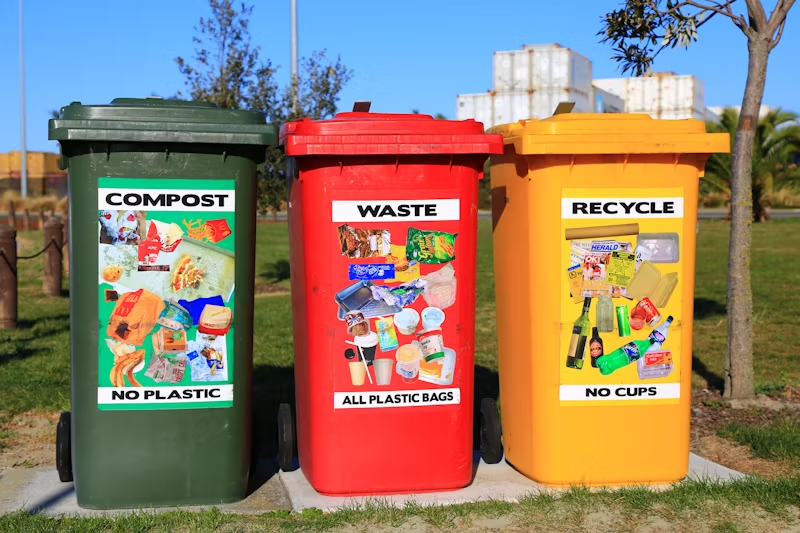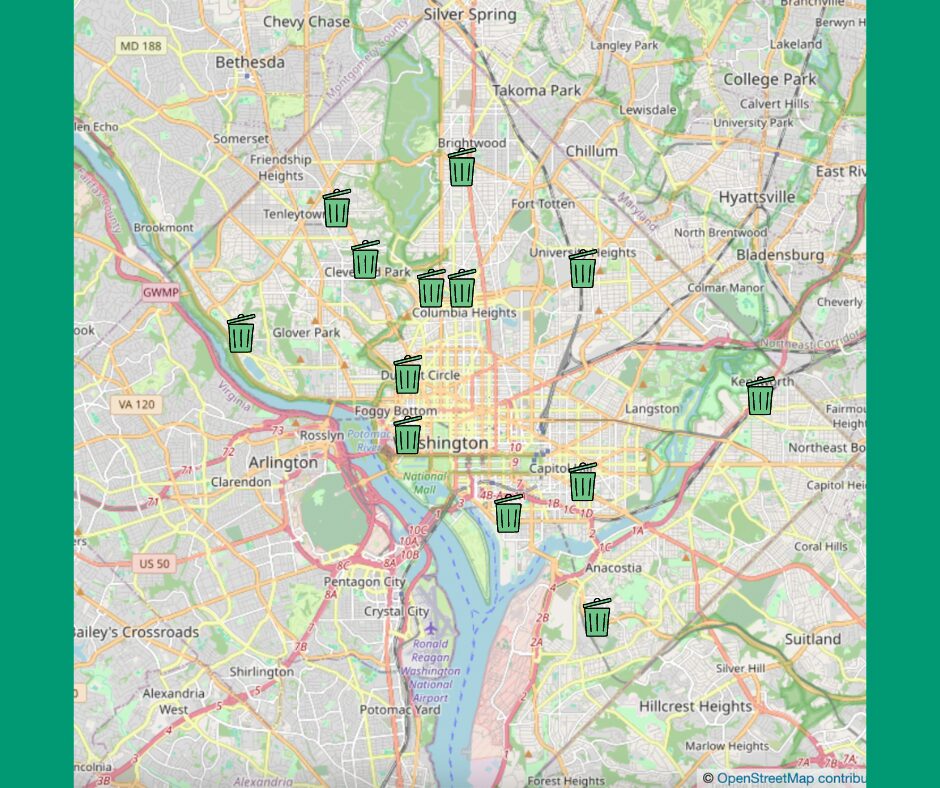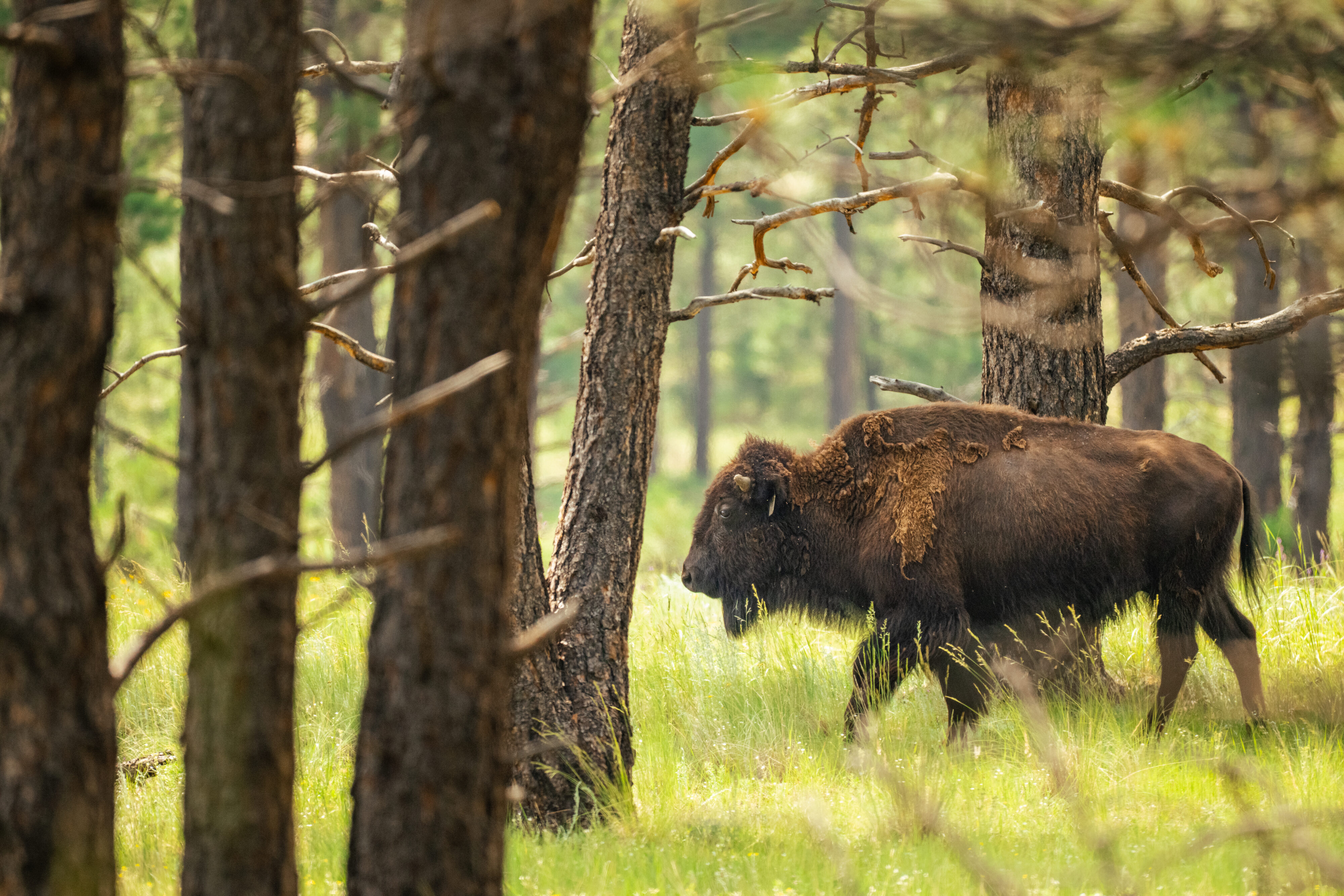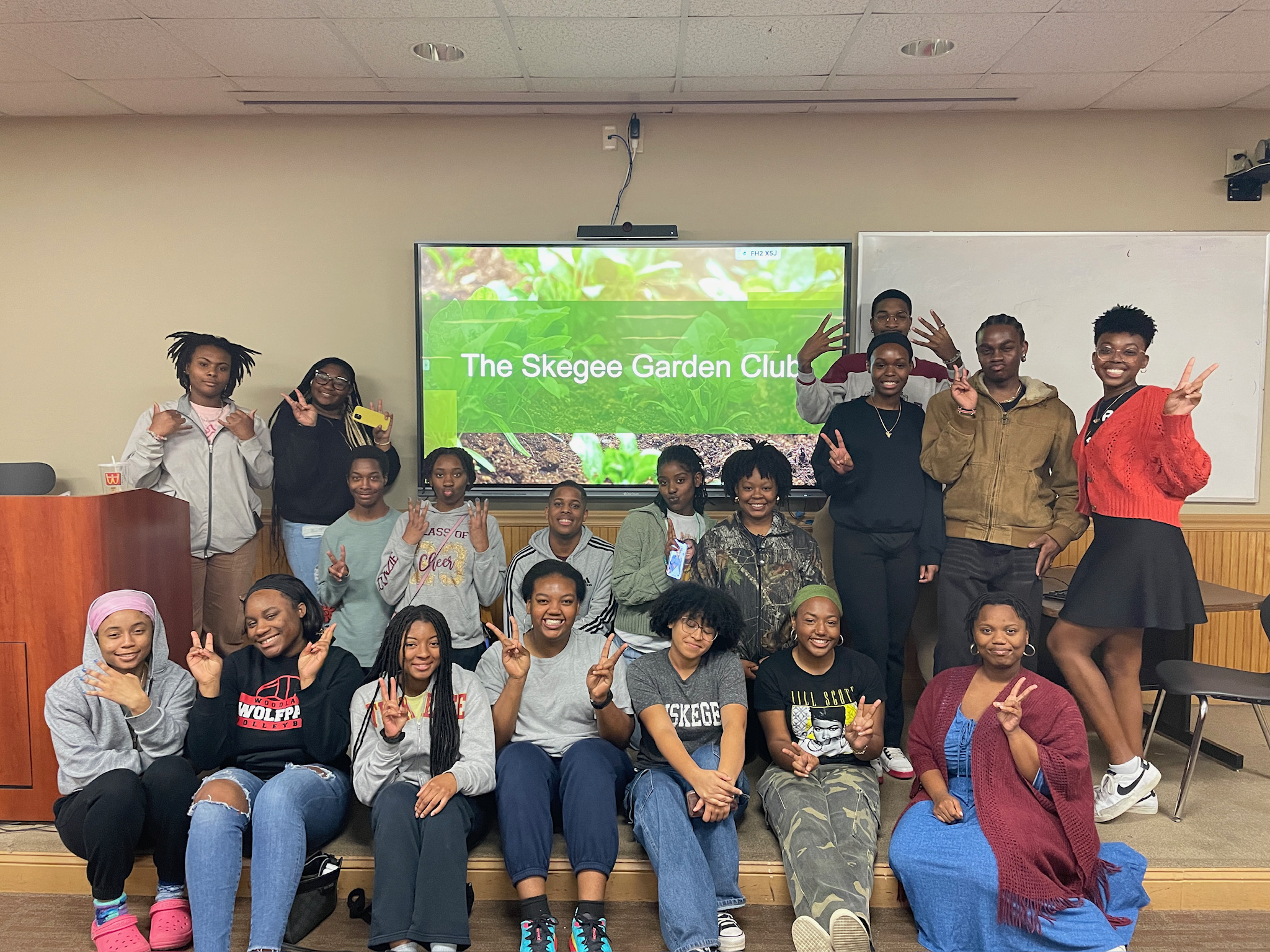
Ask PF | Giving the scoop on composting in D.C.

Last week, we crowdsourced Ask PF column topics on our Instagram story asking followers to submit their burning questions about sustainable living as a college student. If you missed it, make sure to follow Planet Forward on Instagram (@planetforward) to catch the next time we crowdsource column topics.
We received a number of interesting questions pertaining to sustainability. However, one question stood out to me: How do you compost in D.C.?
I chose this question not only because of Planet Forward’s location in the heart of Washington, D.C. but also because it has been at the forefront of my mind recently.
I recently made the cross-country move from California to Washington, D.C., to join the Planet Forward team as an Editorial Assistant and begin graduate school at George Washington University.
The move to D.C. from California has come with numerous exciting and eye-opening moments. However, one of the first differences I noticed about my new home was the lack of green trash cans around the city to dispose of organic waste.
Growing up in California, it was the norm to have a green waste bin alongside your recycle and trash bins. For me, the green bin was the receptacle to throw lawn clippings, fallen leaves, and — after hopping on the compost train a few years ago — my food scraps.
To hype up my home state for a moment, in 2022, California began to require organic waste collection services for households and businesses in every city.
The convenience of composting in California is key to the state’s success. When every household is equipped with a green bin that’s taken from the curb weekly, there’s almost no excuse not to compost.
In stark contrast, there exists a lack of government-provided composting services in D.C. This means people have to get crafty with how they compost in the district.
With this column entry, I hope to show you that while composting in D.C. may be more difficult than in other parts of the U.S., it doesn’t have to be an impossible task.
Why compost?
Composting is important because it reduces the greenhouse gas emissions emitted when organic waste is sent to and decomposed in landfills. According to the EPA, food waste accounts for 58% of landfill methane emissions. Separating food waste from other trash allows bacteria to decompose the organic material and recycle the waste into nutrient-rich soil.
By redirecting food waste from landfills to the compost bin, we as students and individuals can do our part to reduce greenhouse gas emissions.
What can you compost?
The foods that can be composted are:
- Fruit and vegetable scraps
- Eggshells
- Bread
- Dairy products
- Meat
- Bones
- Soiled cardboard
- Coffee grounds and tea bags
However, make sure that items commonly attached to produce, such as fruit stickers, rubber bands, plastic wrap, and other non-degradable items, are kept out of your compost.
Composting around D.C.
The easiest way for those in D.C. to compost is by collecting compost at home and depositing it at one of the food-waste drop-off locations around the city. These drop-off locations are at designated farmers markets and are open the days of the market. Check out this website for a complete list of where and when to drop off your compostable items.

Between your weekly trips to the compost drop-off locations, look into purchasing an at-home compost bin for smell and pest control. Here’s a link to an affordable compost bin with a filter.
Alternatively, you could withhold from purchasing a compost bin if you use a bucket with a lid and store it outside. The final option is to store your compost in the freezer, to reduce the smell and rotting of the food.
It’s crucial to keep an eye on your at-home compost to ensure it’s not taken over by mold or pests. Check your at-home compost daily by noting the look, smell, and aura of the compost.
Composting at your university
To see if your university offers composting bins and other options, a good place to start is by looking up your campus sustainability department.
At George Washington University, students have additional resources that aid their composting efforts. Sustainable GW offers students free countertop-size compost bins for use in their dorms or off-campus residences. To request a compost bin through Sustainable GW, complete this form.
Additionally, GW now has a compost drop-off location on campus. GW students and community members alike, can drop off their compost at the smart food waste collection bin, located in Kogan Plaza.
For those on GW’s campus, I recommend signing up for Sustainable GW’s newsletter to stay up-to-date on the hours of operation for the Kogan Plaza collection bin.
The last option is for people willing to spend. If you have an extra $32 a month lying around, there are multiple compost pick-up services that will conveniently pick up your compost from your house. Compost Cab and Compost Crew serve the local D.C. area, but similar compost pick-up companies exist in other parts of the country.
The big picture
Composting is a small act that makes a big difference in reducing our greenhouse gas emissions and fighting climate change. While in contrast to California and other compost-friendly states, D.C. may not be the easiest place to compost, that shouldn’t prevent us from trying. Hopefully, the sources listed in this column provide a platform to kick-off your composting journey.
However, as I’ve been a resident of D.C. for less than a month, I’m open to learning composting tips and tricks from more seasoned D.C.-ers (is that what we call ourselves?). Please feel free to share your composting insights with us by DMing us on Instagram.
Happy composting!























